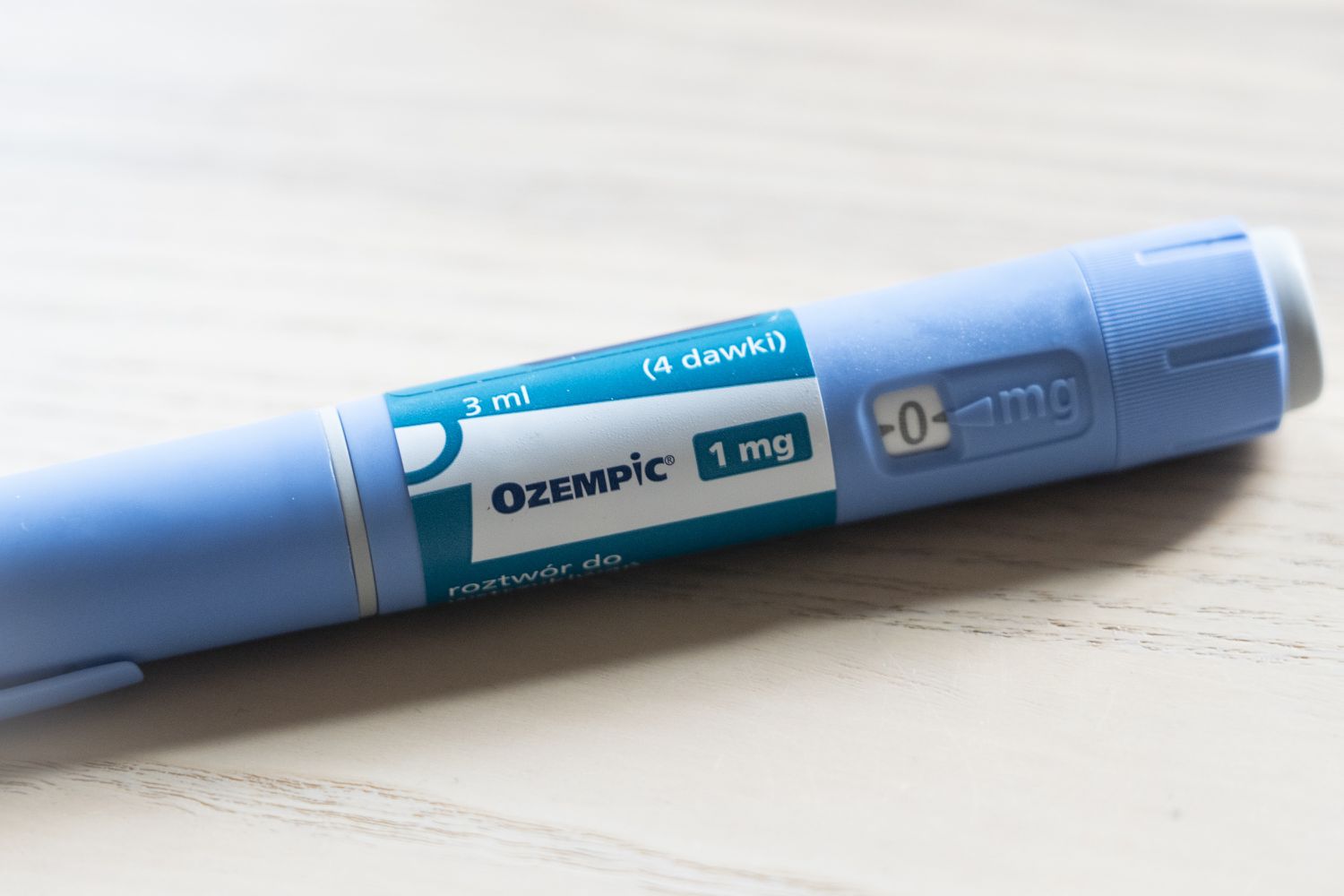Can You Keep Taking Ozempic When You Have COVID? …C0NTINUE READING HERE >>>
Key Takeaways
You can continue taking GLP-1 receptor agonists when you have COVID-19.Not everyone should keep taking the medication when they’re sick.If you stop taking your medication, talk to your doctor when you plan to restart.
The U.S. is currently in the middle of a summer COVID wave, raising a lot of questions about what you can and can’t do when you have the virus. For the 6% of Americans currently taking a GLP-1 receptor agonist medication like Ozempic, Mounjaro, Wegovy, or Zepbound, one of those questions is what you should do about your dosage if you get COVID.
The answer is a little complicated, and there’s not one solution for everyone, according to doctors who prescribe these medications. Here’s why, plus what to do if you take a medication like Ozempic and get COVID-19.
Can You Still Take a GLP-1 Dose If You’re Sick?
Yes, you can still take your GLP-1 receptor agonist medication when you’re sick—but that doesn’t always mean that you should.
“It depends on the severity of your illness,” Mir Ali, MD, a bariatric surgeon and medical director of MemorialCare Surgical Weight Loss Center at Orange Coast Medical Center in Fountain Valley, CA, told Verywell. “Some people have very mild COVID, like a cold—that’s not usually an issue with continuing the medication.”
COVID can cause a range of gastrointestinal issues like nausea, vomiting, and diarrhea. These things can also happen when you take a GLP-1 receptor agonist.
“If you’re having gastrointestinal symptoms or if COVID is causing diarrhea, these medications can really worsen that,” Kunal Shah, MD, an assistant professor in the division of endocrinology at the Rutgers Robert Wood Johnson Medical Center, told Verywell. GLP-1s also put you at risk for dehydration, which can make you feel worse when you’re battling a virus, he said.
As a result, if you’re experiencing gastrointestinal symptoms or if GLP-1s tend to upset your stomach, speak with your doctor about taking a break during the acute phase of your COVID infection.
GLP-1s Might Improve COVID Outcomes
Some research suggests that taking GLP-1 receptor agonists can be beneficial for people with severe forms of COVID-19. One study, presented at the American Diabetes Association Scientific Sessions in 2022, analyzed data from 135 patients who were admitted to the hospital with severe COVID-19 who had type 2 diabetes or hyperglycemia (high blood sugar). The researchers found that those who took GLP-1 receptor agonist medications had a lower risk of admission to the intensive care unit or death than people who didn’t take the medications.
Another analysis of GLP-1 receptor agonists published in 2021 suggested that the medications could be helpful in tamping down bodily inflammation that can be caused by COVID-19.
Still, research into this is ongoing. Shah said it’s “definitely OK to pause your medication” if you’re not feeling well. “In a lot of cases, if my patients have some sort of illness, I typically will have them stop for a week or two,” he said. “Your body sometimes needs those calories to help you get back to normal.”
What Happens If You Stop GLP-1s While You Have COVID?
Doctors said you shouldn’t experience any setbacks or issues resuming GLP-1s if you temporarily stop your medication when you have COVID, although it’s best to check in with your prescribing doctor about next steps.
In some situations, your doctor may recommend tweaking your dosage when you start again.
“Dosing is a case by case basis,” Shah said. “If a person has been shown to be sensitive to a medication and has side effects on their normal dose, we’ll typically drop the concentration of the dose after a week or so of not taking the medication.”
But if you’ve been on a GLP-1 receptor agonist and had no issues with side effects in the past, Shah said you should be just fine to start back on your medication at the typical dose if it’s only been a few weeks.
“A week or two is not going to be a big deal,” he said. “It’s OK to go back on the same dose.”
What This Means For You
If you take a GLP-1 receptor agonist and develop COVID-19, doctors say you’re OK to temporarily stop the medication. However, you don’t need to. It depends on your symptom severity, what you can handle, and how you typically react to your GLP-1 dose.
The information in this article is current as of the date listed, which means newer information may be available when you read this. For the most recent updates on COVID-19, visit our coronavirus news page.
Verywell Health uses only high-quality sources, including peer-reviewed studies, to support the facts within our articles. Read our editorial process to learn more about how we fact-check and keep our content accurate, reliable, and trustworthy.
Harris E. Poll: roughly 12% of US adults have used a GLP-1 drug, even if uaffordable. JAMA. 2024;332(1):8. doi:10.1001/jama.2024.10333
Centers for Disease Control and Prevention. COVID data tracker: summary of variant surveillance.
Centers for Disease Control and Prevention. Symptoms of COVID-19.
Provenzano V, Brancato D, Fleres M, Provenzano F, Salvaggio AR, Scorsone A. 89-LB: COVID-19 outcomes in patients who started GLP1-RAs during hospitalization. Diabetes. 2022;71(Supplement_1):89–LB. doi:10.2337/db22-89-LB
Sazgarnejad S, Yazdanpanah N, Rezaei N. Anti-inflammatory effects of GLP-1 in patients with COVID-19. Expert Rev Anti Infect Ther. 2022;20(3):373-381. doi:10.1080/14787210.2021
Thanks for your feedback!
What is your feedback?
Other
Helpful
Report an Error
>
